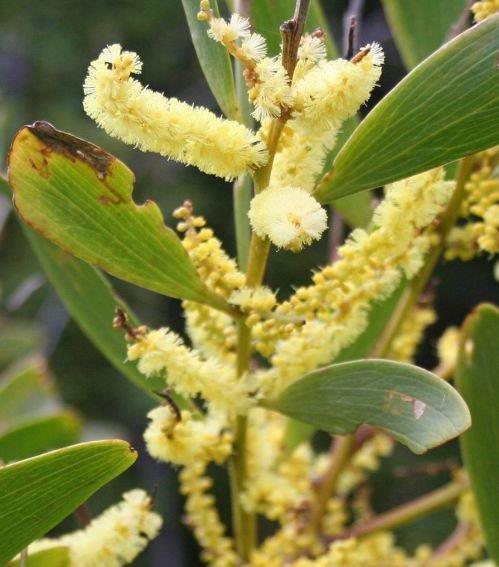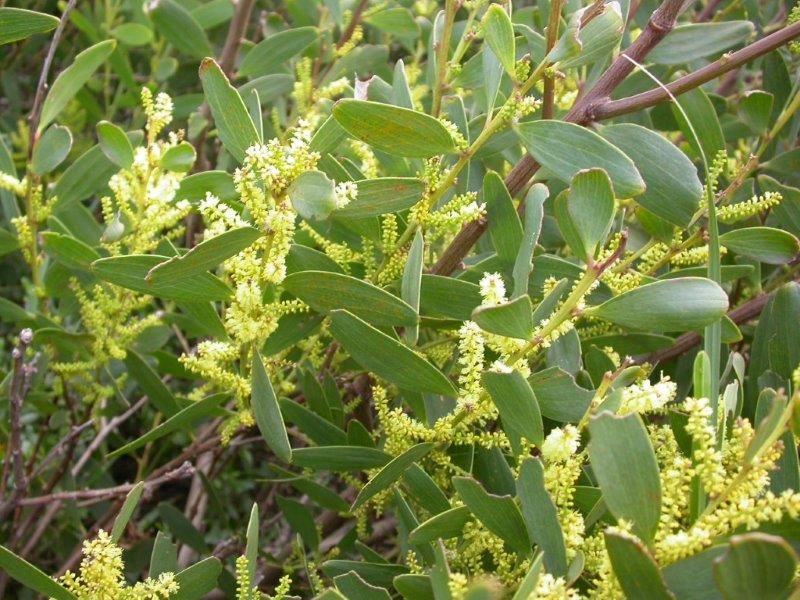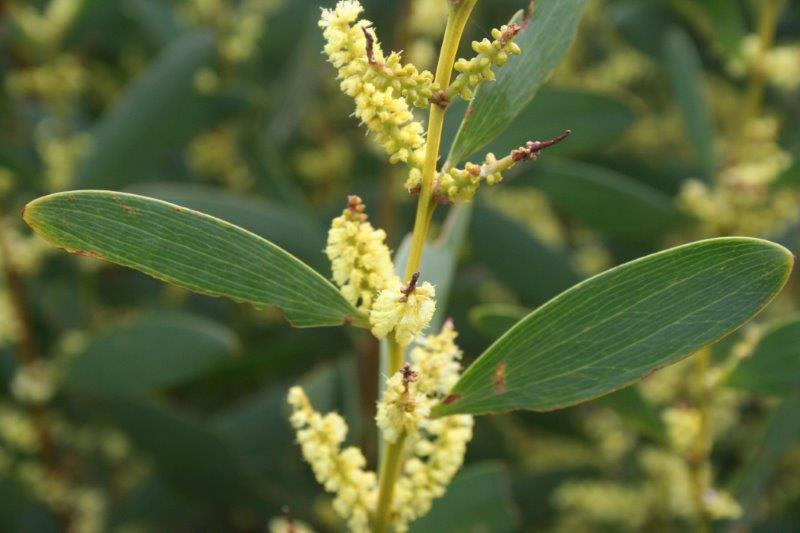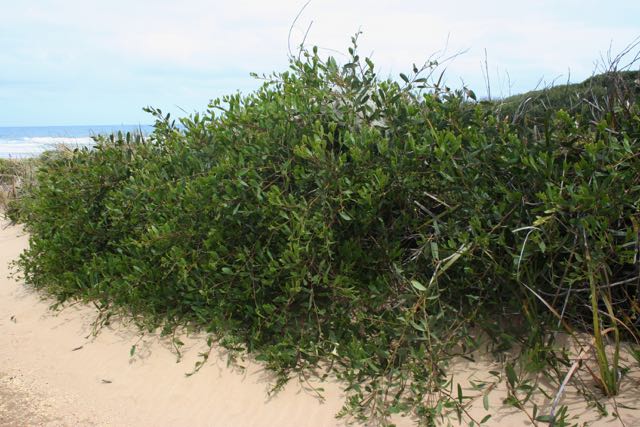



A spherical large shrub to small tree found commonly in the dunes at Point Impossible. Low spreading branches can form a canopy up to 15m wide by 5m high. Co-dominant in primary dune scrub with Coast Teatree (Leptospermum laevigatum) where it is a primary coloniser of mobile sand dunes. Original local distribution is believed to have been no further southwest than Torquay Point where high cliffs and regular fire prevented its spread in that direction.
Leaves are technically phyllodes (modified leaf stems). They are thick, narrowly elliptic; apex blunt.
Note: the introduced NSW Sallow Wattle (Acacia longifolia ssp. longifolia) looks very similar but with thinner, longer, narrower phyllodes and straighter seed pods.
Flowers are pale yellow cylindrical spikes with a peak in flower production around August.
Seed pods produced in early summer; strongly curved.
Conservation Status:
The widespread use of this species in horticulture has meant its distribution has increased dramatically outside its original range allowing it to naturalise in new areas causing dramatic habitat modification and displacement of native species in highly diverse ecosystems including Coastal Heathland at Bells Beach and areas further southwest in the Otways.
Both sides of the leaf are one colour